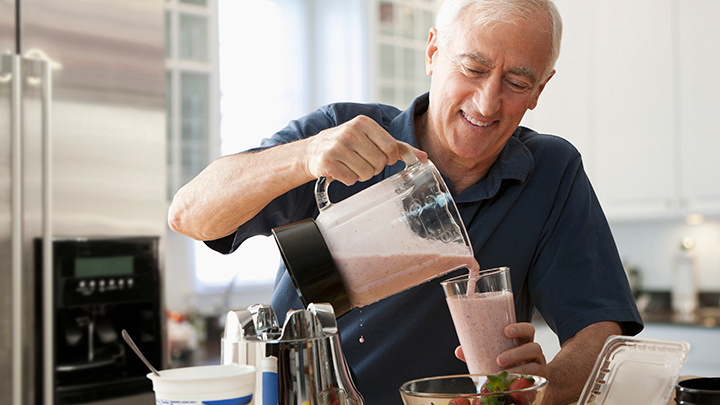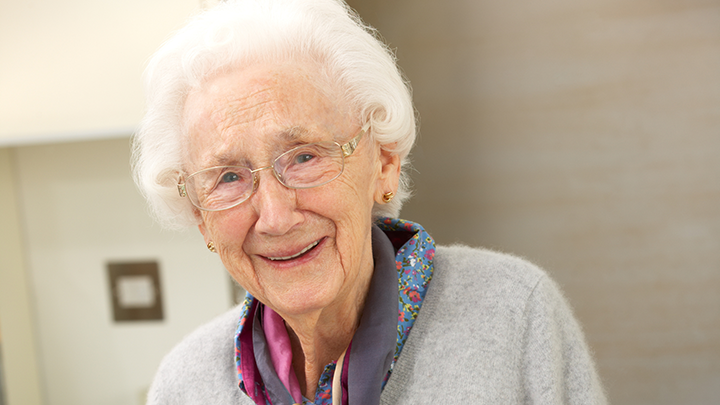
May 1, 2020

Good nutrition can really slow down losing muscle. We begin losing muscle in our 30s and it speeds up after 50 and again after 70.
Concerned about an older adult’s nutrition? Jen Sundberg, a community dietitian who works with seniors, recommends looking for these signs.
These may signal someone is at risk of further weight loss, malnutrition or loss of physical function. In these days of physical distancing, you may not be able to see these signs. Have a phone or video call during or after meal times as a nutrition check-in. Food is part of our lives, can be fun to discuss and a way we can learn about each other.
Ask about their health; be gentle and say this is a time to help one another.

Research shows seniors who eat more protein lose less muscle than those who eat less.

Older adults need to eat protein food at each meal and at least three to four times a day. Protein food includes lean meats, fish, beans, nuts, eggs, milk, cheese, yogurt and tofu.
Nutrition is important to everyone. It’s even more so for older adults.
“Nutrition is a great way to help older adults stay physically and emotionally strong, which is helpful for immunity and overall health,” says Marlis Atkins, a director with Nutrition Services at Alberta Health Services. She and her team advise Albertans of all ages about nutrition. One area of focus is malnutrition, a common concern among anyone over the age of 65.
Close to half of Albertans who come to hospital are malnourished—the clinical term for not getting enough nutritious food or not getting enough nutrition from the food they eat.
Many things can affect our appetite and how we eat. They include:
All these factors can increase the risk of malnutrition.
And not getting enough to eat or not getting enough nutrition from the food we eat can lead to even more problems. Eating poorly can affect anyone’s ability to live on their own.
Our bodies need nourishment. Without it, we lose energy and our muscles, joints and bones weaken. In turn, this can increase the risk of trips and falls. Poor nutrition can also make it harder to heal from injuries or recover from illness.
And if you have other health concerns, it can lead to more doctor visits and longer hospital stays.
Preventing malnutrition can help older adults stay strong and independent.
“Seniors have many levels of health and physical abilities,” Atkins says, “but as we age, some nutrition issues need to be looked at for everyone. Good nutrition can really slow down losing muscle.”
As early as age 30, we can start losing muscle. After 50 and again after 70, muscle loss speeds up. We can slow down how fast we lose muscle three ways. By eating a well-balanced diet with a variety of nutrients. Eating protein-rich foods throughout the day. And being physically active. (Ask your primary care doctor about activities right for you.)
When we’re older, we need more protein because it can be harder for our muscles to absorb it. Protein helps maintain muscle. Research shows seniors who eat more protein lose less muscle than those who eat less. We need muscle to be independent. Take our leg muscles. They’re important for standing and walking. And for sitting down and getting up from chairs or getting in and out of bed.
To keep our muscles strong, we need to stay active and eat healthy foods. At all ages.
Eating enough protein or calories can improve our strength and help prevent malnutrition.
These nutrition tips can help older adults stay strong: